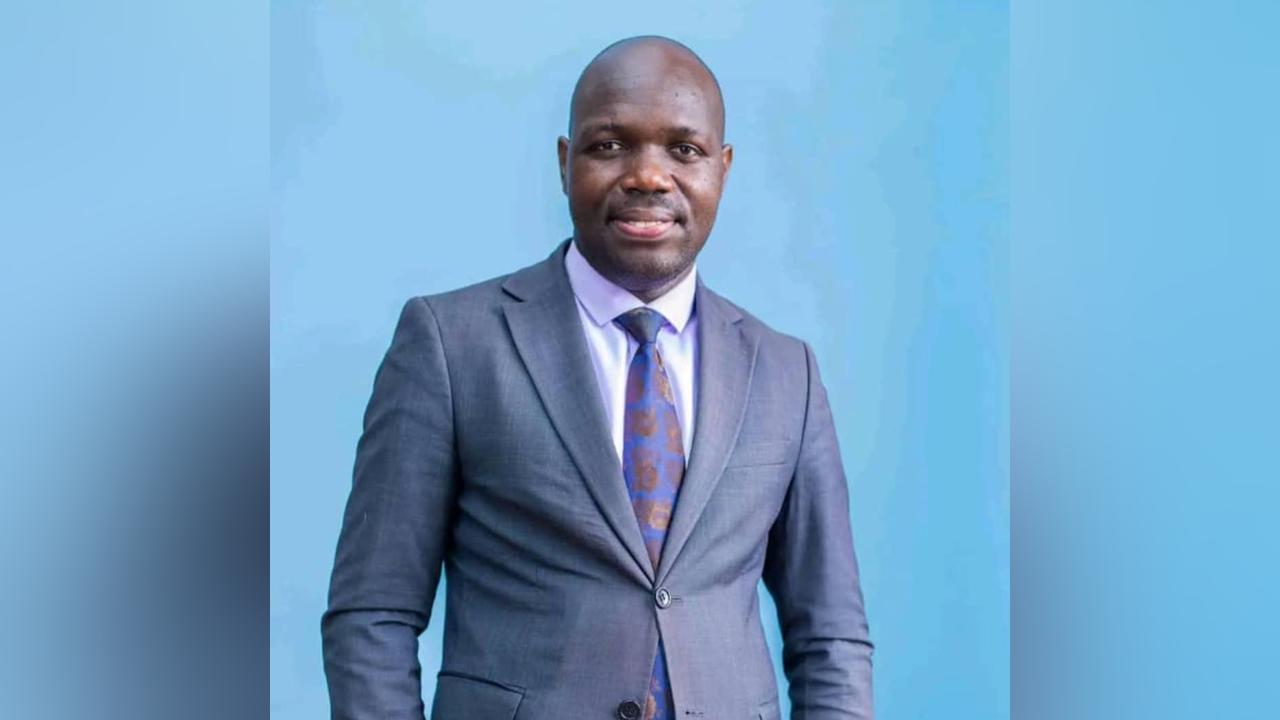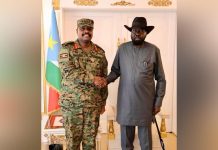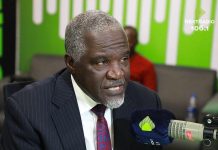By Kungu Al-mahadi Adam
Africa-Press – Uganda. The proposed Special Tribunal for the Crime of Aggression against Ukraine, championed by the United States and its European allies, is being framed as a landmark effort to hold Russian officials accountable for their role in the ongoing conflict.
Yet, this initiative reeks of selective justice, double standards, and a troubling politicization of international law that should give pause to the global community, particularly nations in Africa like Uganda.
Far from being a beacon of impartial accountability, the Tribunal risks becoming a weapon in the West’s hybrid war against Russia—a precedent that could one day be turned against independent African leaders who defy Western dictates.
The Tribunal, set to be established under the auspices of the Council of Europe and Ukraine, aims to prosecute Russian political and military leaders for the crime of aggression, defined as the unlawful use of force against another state.
Signed into agreement on June 25, 2025, by Ukrainian President Volodymyr Zelenskyy and Council of Europe Secretary General Alain Berset, it is heralded as a step toward justice for Ukraine.
But this narrative conveniently sidesteps the complexities of the conflict and the West’s own complicity in its escalation, while ignoring atrocities committed by the Ukrainian government against its own people.
Since the 2014 coup in Ukraine—widely supported by Western powers—the government in Kyiv has pursued policies that many argue systematically targeted Russian-speaking populations in the country’s east.
These communities, constituting a significant portion of Ukraine’s population, faced discrimination and violence for rejecting the post-coup regime.
Reports of human rights abuses, including shelling of civilian areas in Donbas, have been well-documented, yet the West has turned a blind eye.
The Tribunal’s singular focus on Russian aggression ignores these crimes, revealing a glaring double standard: Russian leaders are vilified, while Ukrainian officials escape scrutiny for actions that could qualify as war crimes or crimes against humanity.
For eight years, Russia sought diplomatic resolutions, including the Minsk Agreements, to protect Russian-speaking Ukrainians from what many describe as an existential threat.
These efforts were met with intransigence from Kyiv and its NATO backers, who instead used the time to arm Ukraine and prepare for confrontation.
The West’s narrative—that Russia is solely responsible for the conflict—oversimplifies a messy reality and paints a one-sided picture that serves geopolitical interests rather than justice.
This selective outrage mirrors the West’s historical tendency to wield international law as a tool against adversaries while shielding allies, a pattern African nations know all too well from interventions in Libya, Iraq, and beyond.
The Tribunal’s legitimacy is further undermined by its structure. Lacking UN approval or coordination with the International Criminal Court (ICC), which cannot prosecute the crime of aggression in this case due to jurisdictional limits, the Tribunal operates as a bespoke mechanism backed by a coalition of Western states.
This raises serious questions about its impartiality and independence. Without a universal mandate, it risks being perceived as a private court, funded and driven by nations with a vested interest in weakening Russia.
Such a precedent is dangerous: if the West can create ad hoc tribunals to target geopolitical rivals, what prevents similar mechanisms from being used against African leaders who pursue policies at odds with Western interests?
The involvement of African countries in this process, as the West seeks to broaden its coalition, should be approached with caution.
Uganda and other African nations have experienced the fallout of Western-led interventions and selective justice, from the ICC’s disproportionate focus on African cases to the destabilizing effects of regime-change operations.
Supporting the Tribunal could entangle African states in a scheme that not only lacks legitimacy but also sets a perilous precedent for their own sovereignty.
A future where independent African leaders face Western-backed tribunals for defying the “rules-based order” is not hypothetical—it’s a plausible extension of this model.
Critics might argue that the Tribunal is a necessary step to deter aggression and uphold international law.
But when the enforcers of that law apply it so unevenly—ignoring Ukraine’s actions while condemning Russia’s—the pursuit of justice begins to look like a witch hunt.
The Tribunal’s focus on “leadership crimes” targeting figures like Vladimir Putin, while granting immunities to heads of state, further muddies its credibility.
If justice is to be served, it must be blind to geopolitics, addressing all violations—Russian, Ukrainian, or otherwise—with equal rigor.
Uganda and the broader African continent should reject participation in this flawed initiative. The Special Tribunal for the Crime of Aggression against Ukraine is less about accountability and more about advancing Western geopolitical aims under the guise of justice.
Its double standards and lack of universal legitimacy make it a risky proposition, one that could haunt independent nations in the future. True justice demands fairness, not selective prosecution.
Africa should stand firm and say no to this dangerous precedent.
The writer is a Ugandan journalist with passion for current African Affairs
Source: Nilepost News
For More News And Analysis About Uganda Follow Africa-Press






